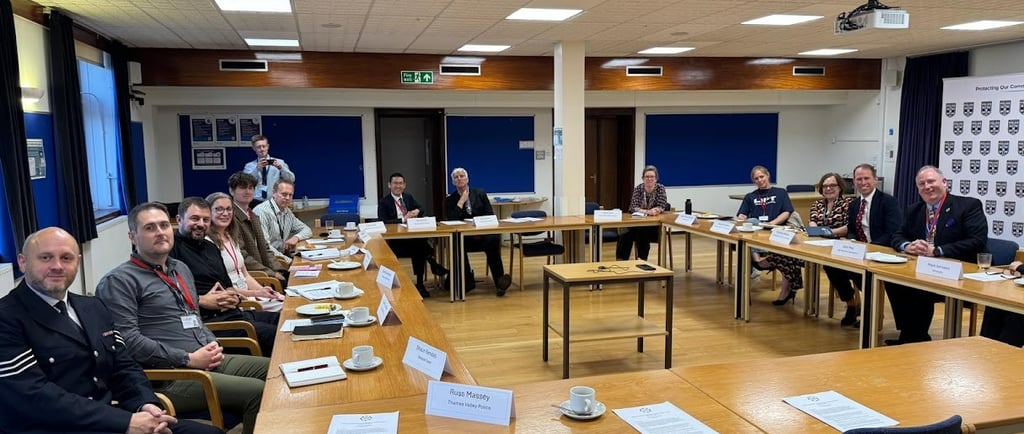Hearing the Young Unheard – A Conversation at Thames Valley Police HQ
6/13/20252 min read


This morning, we came together at Thames Valley Police Headquarters in Kidlington, kindly hosted by Matthew Barber, Police and Crime Commissioner, and his office, for another in our series of Breakfast Conversations—gatherings focused on hearing the young unheard.
Bringing together an extraordinary mix of voices—from policing, education, youth work, local government, and the voluntary sector—we gathered around a single, urgent question: how can we better hear and respond to the young unheard in Oxfordshire?
These conversations are not about abstract strategy. They’re about reality. What’s happening now. What needs to change. And what each of us is willing to do about it.
What We Heard
A number of strong themes emerged from our discussion:
Belonging and Connection: A sense of belonging is fundamental for young people—but too many are growing up feeling disconnected from schools, services, and their communities. When young people feel seen and valued—through sport, creativity, or trusted relationships—their outcomes improve dramatically.
Schools and Transitions: Schools carry extraordinary responsibility, often with limited support. We heard about the risks inherent in key transition points—especially between primary and secondary—and the need for stronger school-family relationships.
Youth Voice and Representation: It’s time to move beyond tokenistic youth councils. We need inclusive, grassroots models that truly listen to those young people who rarely, if ever, get heard.
Volunteering and Informal Support: The voluntary youth sector remains a lifeline, but numbers are falling. Informal and peer-based mentoring is promising, but safeguarding and quality assurance must be prioritised.
Access and Inequality: Transport, cost, digital exclusion, and long waiting lists continue to block access—especially for the young people who need support most.
Home Education and Hidden Vulnerability: We must not ignore the rapid rise in home-educated children. For some, it’s the right path. But for others, it’s a space where vulnerability can remain hidden from view.
Fragmentation and Alignment: Many people are doing great work—but often in silos. We talked about the growing number of individual strategies emerging across sectors. The challenge is not to homogenise, but to map where we align—and crucially, where we don’t.
A Shared Frustration
There was a moment in the conversation that hung in the air. A colleague said quietly, “We were having these same conversations in the 1990s.”
That sense of déjà vu cut through the room. The issues we’re talking about—exclusion, disconnection, lack of joined-up provision—aren’t new. The real frustration isn’t lack of knowledge. It’s lack of action.
We agreed we must move:
From knowing to doing.
From fragmentation to alignment.
From pilots to long-term investment.
From consultation to co-production.
And critically: to act with shared courage, knowing that no single service or sector can do this alone.
We ended the morning with commitments. Each attendee made a pledge—personal or organisational—about what they will do next.
What Happens Now?
This isn’t the end of the conversation. Far from it.
We’ll continue these meetings throughout the year—listening, challenging, connecting. And in March 2026, I’ll reconvene everyone who’s taken part in a countywide gathering, to report back on what’s been done, what’s changed, and what still needs work.
If you’re reading this and thinking, “I could be part of that,” you probably could. Please reach out.
Because Oxfordshire’s young people don’t need another plan. They need us—adults who are willing to listen, act, and stand alongside them.
The Oxfordshire Shrievalty
Championing justice and community across Oxfordshire
© 2026. All rights reserved.
